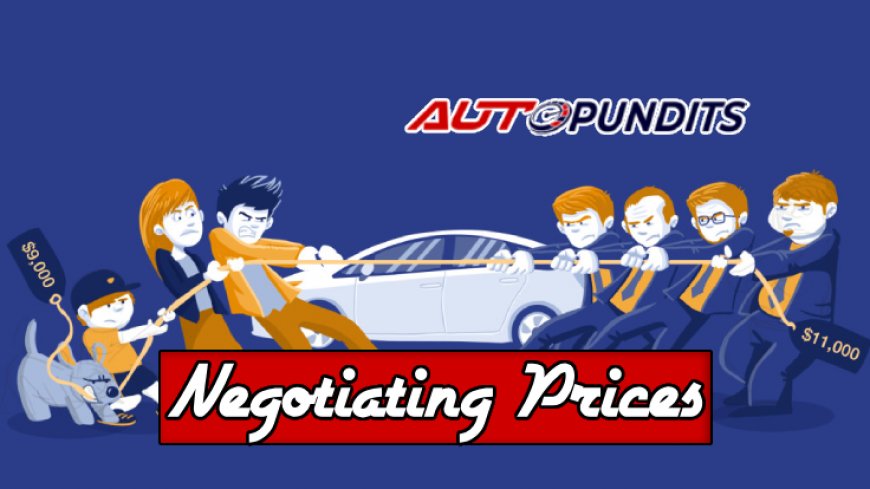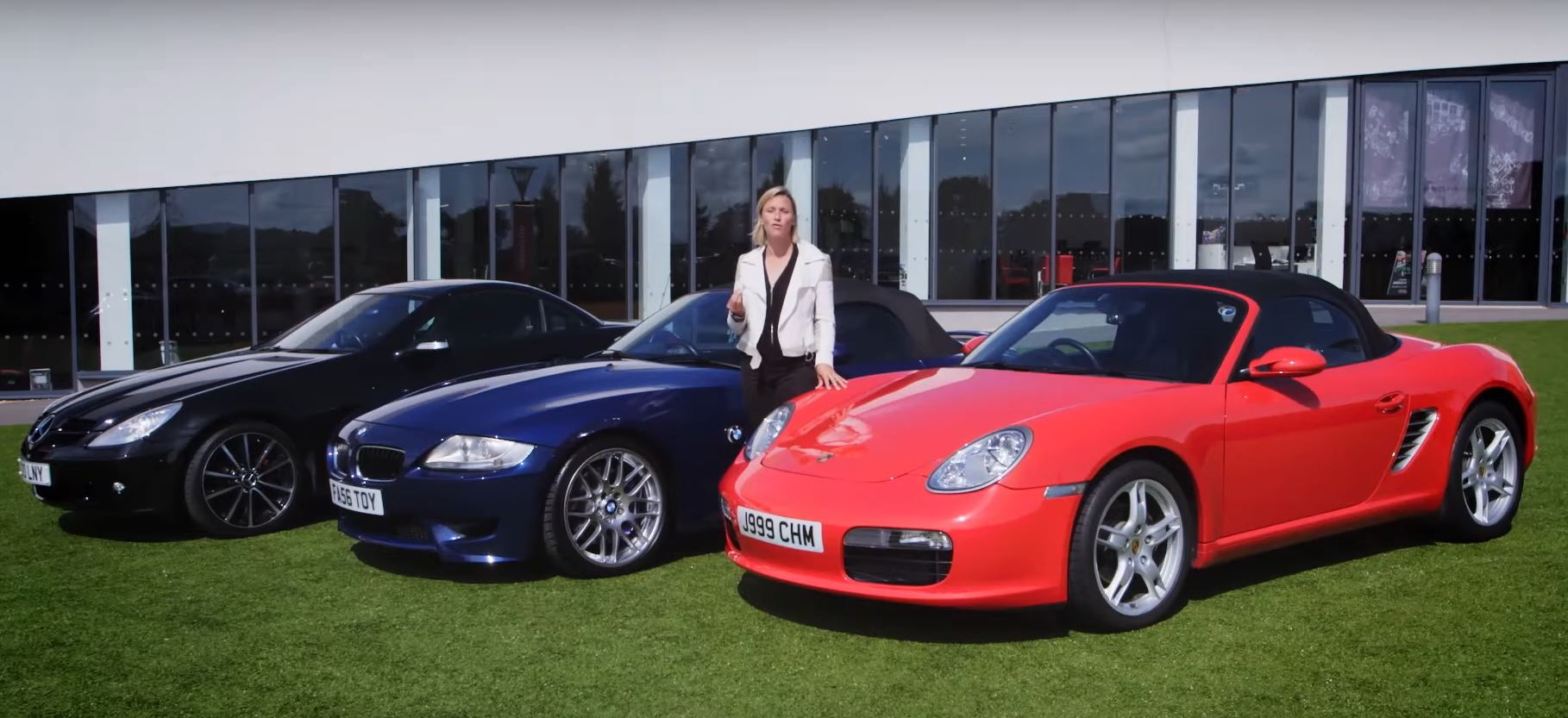Negotiating Deals on Second-hand Sports Cars
Master the art of negotiation and drive away with the best deal on your dream second-hand sports car.

When it comes to negotiating used sports car prices, one can often feel overwhelmed with lack of experience or knowledge. But worry not — this comprehensive guide aims to equip you with a set of sharpened skills to confidently negotiate the best deal for your dream second-hand sports car. We will demystify the process and unveil some insider knowledge about the dealerships, making your foray into the pre-owned sports cars segment smooth sailing.
Navigate the Road of Sport Car Price Negotiation
Regardless of whether you're a seasoned automobile connoisseur or new to the world of luxury sports cars, negotiation is a valuable skill. The good news is that it's acquirable, and the following guide will help you master it.
Table of Contents
- Understanding the Value of Second-hand Sports Cars
- When is the Best Time to Buy a Used Sports Car?
- Dealership vs. Private Sale: Pros and Cons
- Important Questions to Ask When Negotiating Used Sports Car Prices
- Expert Negotiation Strategies for Used Sports Cars
- Common Mistakes to Avoid in Second-hand Sports Car Deals
Understanding the Value of Second-hand Sports Cars

Revenue from used cars, including luxury and sports cars, often equals or even surpasses that of new cars at dealerships. Wondering why? The answer lies in comprehending the value of second-hand sports cars.
The depreciation factor plays a significant role in luxury vehicle pricing. A brand-new sports car begins depreciating the moment it’s driven off the showroom floor – some vehicles can lose up to 20% to 30% of their value in the first year alone. However, after this initial depreciation, loss rates decrease, making buying a used sports car a worthwhile investment.
Understanding the car's value, including factors like the car’s age, mileage, overall condition, service history, market demands, and more, is fundamental when negotiating a car price. Knowledge truly is power in this domain.
Research is Key
Detailed research can equip you with the information needed to negotiate confidently. Explore online databases, comparison websites, and analytics tools that provide insights into the car's approximate worth. Armed with this data, you won't find yourself overpaying for your second-hand sports car.
When is the Best Time to Buy a Used Sports Car?
Just like any industry, the used car market also observes fluctuations and it can be beneficial to strategically time your purchase. But when exactly is the best time to buy a used sports car?
- End of the Month/Quarter: Dealerships often have monthly or quarterly sales targets and may be more likely to negotiate prices at these times to reach their goals.
- Seasonal Change: Demand for sports cars typically decreases during colder months. You might find great deals on second-hand sports cars in late fall or winter.
- When new models are about to hit the market, dealers may offer discounts on the current year’s inventory, including used cars.
However, remember, the absolute best time to buy is when you're prepared with the right research and understanding of your budget.
Dealership vs. Private Sale: Pros and Cons

When buying a used sports car, two options will vie for your attention: dealerships and private sales. Each has its own set of pros and cons, and understanding these can aid in making an informed choice.
Buying from a Dealership
Dealerships provide a fuss-free buying experience and might offer additional services like warranties, certified pre-owned vehicles, and financing options. But all this comes with a higher price tag. Remember, dealerships are businesses that need to make a profit, and their prices frequently reflect that.
Buying from a Private Seller
Private sales can be cheaper, as there's no business overhead involved. Sellers might be more willing to negotiate, especially if they are keen to sell quickly. However, private sales often involve buying 'as is.' You might miss out on potential issues that a dealership’s inspection would have caught. It's strongly advised to get a pre-purchase inspection from a trusted mechanic when buying privately.
Important Questions to Ask When Negotiating Used Sports Car Prices
Now that you have weighed your buying options, it's crucial to prepare for the negotiation itself. Knowing which questions to ask will not only reveal key information about the car but also signal to the seller that you're a serious, knowledgeable buyer.
- The Car's History: Has it been involved in any accidents? What repairs or important maintenance work has it undergone? Always verify details independently, too.
- Reason for Sale: Why is the car being sold? Genuine reasons can provide reassurance. Be wary of vague or hurried responses.
- Condition: Inquire about everything from mechanical issues to cosmetic problems. Better yet, bring along your mechanic to give the car a once-over.
- Lifetime Costs: This includes insurance, maintenance, fuel efficiency, and any necessary repairs. These costs often exceed the price of the car itself over time.
Never be embarrassed to ask questions. This car is a hefty investment and deserves your due diligence.
Expert Negotiation Strategies for Used Sports Cars

Now, onto the moment of truth: the negotiation itself. Here are some expert-recommended strategies to help you secure the best deal.
Know Your Maximum Price: Before the negotiation begins, have a clear idea of the highest price you're willing to pay based on your research. Start with a lower offer and be prepared to go up, but never exceed your maximum.
Think Beyond the Price: Look for other ways the seller can contribute value, such as additional warranties, free servicing, or new tires.
Take Your Time: Don't rush the process. If the negotiation seems to be getting heated, take a step back and consider returning another day. This can also show the seller you're not desperate to buy, which may shift the power dynamic in your favor.
Stay Strong in The Face of Persuasion
Sellers, especially dealerships, often push for quick decisions. They may even apply sales tactics or pressure to make you act faster. However, handle this with grace, understanding it is part of their job, but knowing your boundaries. A practiced calm and firm resolve can go a long way.
Common Mistakes to Avoid in Second-hand Sports Car Deals
Lastly, flying into this transaction without considering potential pitfalls could slide you into a bum deal. Here are some common mistakes to avoid when negotiating used sports car prices:
- Getting Emotionally Attached: Falling in love with a car and showing it too eagerly can give the seller an upper hand in negotiations — keep your enthusiasm in check.
- Neglecting Mechanical Check: Always get a trusted mechanic to inspect the car. A shiny exterior can hide a multitude of mechanical troubles.
- Ignoring the Fine Print: All conditions, warranty details, and additional agreements should be thoroughly read and understood. Understand your commitments.
To reiterate, knowledge is your strongest negotiation tool. Being aware of these common mistakes and thoughtfully navigating around them will put you in a position of strength, ensuring you walk away with the best deal possible. Happy car hunting!
What's Your Reaction?


































































